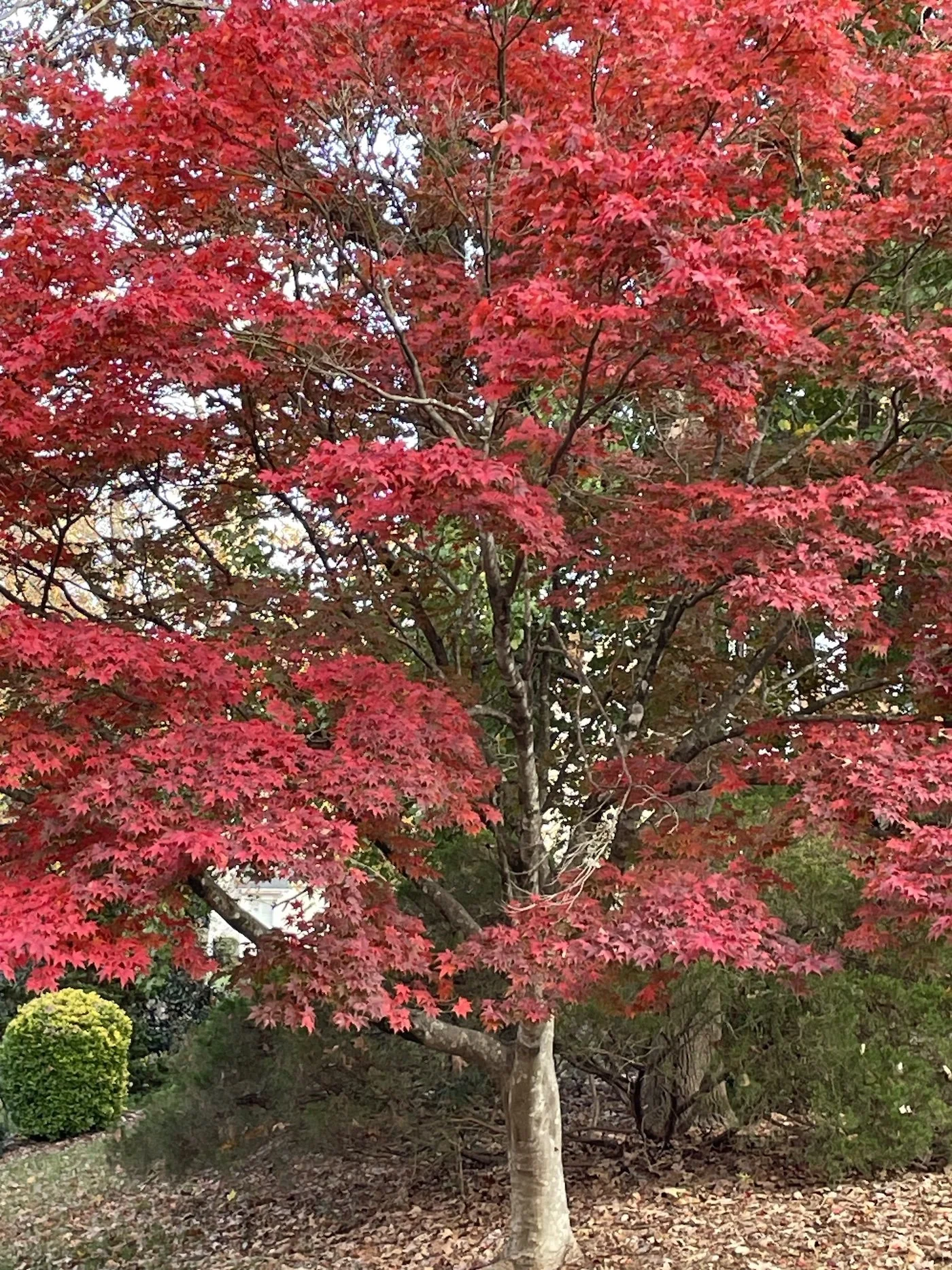The Power to Choose Your Response - Part I
Photo by Elaine Klonicki
“Practice the pause. Pause before judging. Pause before assuming. Pause before accusing. Pause whenever you're about to react harshly and you'll avoid doing and saying things you'll later regret.”
~ Lori Deschene
Hello again! It’s been a while. I hope you are enjoying some lovely fall weather. These past two weeks in North Carolina, when the leaves have been at their peak, have been absolutely gorgeous.
As you may have noticed, I’ve been on hiatus the last few months. I took some time off from posting to finish a few longstanding projects. I’ve missed sharing my observations, and I’ve missed hearing from you!
This week, a friend and I have been chatting about how we handle it when we get our feelings hurt. She’s been dealing with relationship drama after a loss in her family triggered some terrible infighting. Initially, it shook her to the core and caused her to lose sleep. When I texted a few days later to check on her, she was starting to feel better. She had taken a long walk in a park that morning to clear her head while admiring the beautiful leaves, and said it did wonders for her mood and outlook.
We’ve both read a lot of spiritual books in the last decade, many of which I’ve shared with you here on this site, about reframing our difficult experiences as opportunities for learning. In our conversation, we were reflecting on how much better we seem to handle life’s ups and downs now than when we first met. We agreed that we’re not reacting to these events with as much intensity these days, and are recovering from them more quickly.
She and I attribute our growing ability to calm ourselves more easily to the Zen concepts we learned in our book club. One of my favorite titles on our list is What’s in the Way IS the Way by Mary O’Malley. As the book title implies, what we think of as obstacles in life often set the stage for our growth.
Most of us start out in life thinking that things are supposed to be good all the time, and we get upset when we encounter disappointments and unfair situations.
As a “Grammie,” I’ve lost track of the number of times I’ve heard “IT’S NOT FAIR!” from my grandkids. But struggles, relationship or otherwise, are to be expected in life. They are just part of the experience of being human. We all know this to be true, and yet, when bad things happen to us, it’s easy to forget it.
At the moment we’re triggered, it rarely feels like there’s anything we can do about it.
We get hurt, or ticked off, and our adrenaline kicks in. We’re moved to tears or anger. We may be temporarily unable to respond, or we may respond too quickly with a hurtful retort we may later regret.
I’ve wondered if it’s possible to keep from feeling that initial sting. You’d think if we truly embraced the spiritual practices we’ve studied, we should be able to keep ourselves from reacting. But, unfortunately, we can’t control our bodies to that extent, according to psychologists. Being attacked, even just verbally, leads to an involuntary physiological reaction. Our hearts begin racing and our breathing becomes more rapid as if we’re in real danger. It’s this fight-or-flight mode that makes us respond with such intensity.
When we’re hurt or offended, if we can learn to pause just a bit to calm ourselves, our reasoning will kick in, allowing us to temper the intensity of our emotional responses.
Then we can take our time and do the self-analysis required to gain perspective before we determine the most effective course of action. Depending on the circumstances, that may mean choosing to ignore the hurtful comments or actions or addressing them calmly with the hope of reconciliation. (I’ll talk more about that decision-making process in my next post.)
Learning to regulate ourselves emotionally can take years of practice and requires much patience with ourselves. However, it is well worth the effort since it can save us a great deal of emotional distress in our lives.
The next time you feel yourself starting to flare up in response to a perceived or obvious slight, remember that it is within your power to limit its power.
The less reactive we are, the more we can keep things from escalating. And the sooner we recover, the more carefree, walk-in-the-park kind of days we will have ahead of us!
Affectionately,
Elaine

